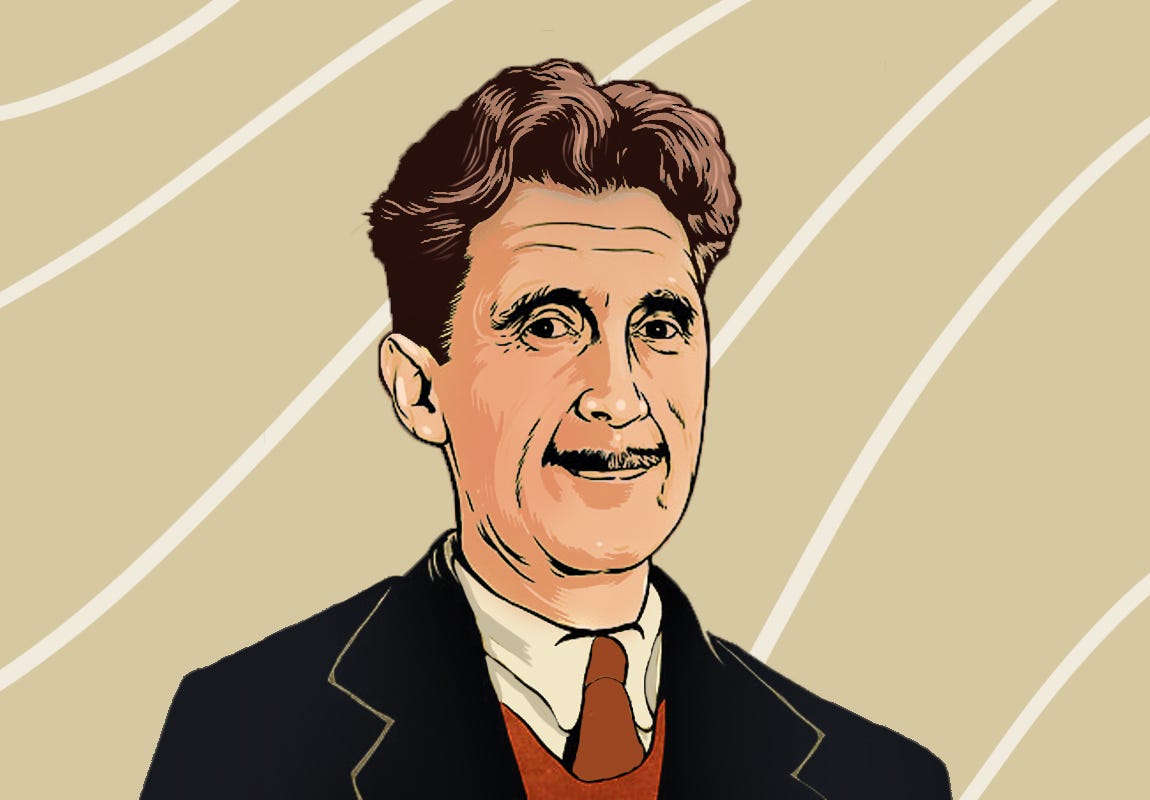George Orwell : The man who wrote Animal Farm
George Orwell was born Eric Arthur Blair on 25 June 1903 in Motihari, Bengal, to Richard Walmesley Blair, a British colonial civil servant in India and Ida Mabel Blair. Orwell spent his first days in India, and about a year after his birth, he was brought to England by his mother. They got settled in Henley-on-Thames while his father stayed back in India. His family was not wealthy, and Orwell was raised in an impoverished, snobbery environment, which he later portrayed in his works.
In 1911, Orwell was sent to a boarding school in Sussex, where he faced discrimination for his wealth and social status. He noticed that the school treated the students according to their financial status. However, Orwell was a studious child, and books were his dearest friends who comforted him in his unhappy days. He later secured a King's Scholarship to Eton College and started schooling there in 1917.
His family's financial condition prevented Orwell from attending college and continuing his higher studies. Instead, in 1922, following his family's path, Orwell joined the Indian Imperial Police Force and served five years in Burma. He returned to England in 1927, intending to build a career in writing, the one dream he had been seeing from his childhood. Unfortunately, it was not as easy as he thought. On returning, Orwell struggled to make ends meet and did several jobs, including being a dishwasher.
The hardship he had to face back in England, living a vagrant life, provided the material for his first novel, Down and Out in Paris and London. The work portrayed the lives of the people he came across in the slums and his real-life incidents in a fictional way. He adopted the pen name George Orwell shortly before the publication of the work in 1933. Orwell had started teaching in a small private school in Middlesex about this time. But a bout of pneumonia caused by tuberculosis, a condition that followed throughout his life, bought an end to his teaching career.
His career-best work, Animal Farm, a political satire fable with the Soviet Union as its theme, came out in 1944.
Giving up his teaching career, Orwell moved to Southwold and spent a year there writing his first novel Burmese Days. He worked part-time in a bookshop, where he met Eileen O'Shaughnessy, his future wife, whom he married in 1936. Burmese Days was published in 1934, followed by his second novel, A Clergyman's Daughter, in 1935 and Keep the Aspidistra Flying in 1936.
In 1937, Orwell moved to Spain to write newspaper articles about the Spanish Civil War. Later, he joined the struggle as a Republican volunteer against the Fascist party and Franco. His political views got allied with socialism during his Spanish life. An account of his time in Spain got portrayed in the 1938 work, Homage to Catalonia. In 1939, He returned to England and got appointed as the person in charge of broadcasting to India and Southeast Asia for the British Broadcasting Corporation (BBC) in 1941. The job doesn't suit Orwell's nature and his political ideology. Resigning his position at BBC in 1943, Orwell joined The Tribune as the literary editor.
His career-best work, Animal Farm, a political satire fable with the Soviet Union as its theme, came out in 1944. Unfortunately, Eileen's death in the same year and his pathetic health condition made Orwell's personal life hard. He was left alone with Richard Horatio Blair, the boy the couple had adopted previously. Orwell raised the boy with the help of his sister, Avril. Despite his poor health and breakdowns in his personal life, Orwell completed his final novel, the famous, Nineteen Eighty-Four, in 1948. Soon after the book's release, Orwell suffered a complete physical collapse due to advanced tuberculosis and was taken to a nursing home in the Cotswolds.
In 1949, Orwell had an unexpected second marriage to Sonia Brownell, an editorial assistant for the literary magazine Horizon, shortly before his death. He was later transferred to University College Hospital, where he died on 21 January 1950. He is buried in the churchyard of All Saints, Sutton Courtenay, Berkshire. Orwell's seventeen-year-long literary career will forever be remembered for his exceptional and unparalleled writings.


